
Ventspils: The Gem of Latvia's Baltic Coast
Ventspils is a charming coastal city located on the west coast of Latvia, along the Baltic Sea. Known for its picturesque beaches and vibrant port, it is a perfect blend of natural beauty and modern amenities. The city is incredibly clean and well-maintained, with colorful flower displays and public art installations adding to its appeal. One of the key attractions is the Blue Flag Beach, which offers pristine sands and clear waters, making it an ideal spot for sunbathing, swimming, and various water sports. The nearby Seaside Open-Air Museum provides a fascinating glimpse into the maritime history of the region, featuring traditional fishing boats and other historical artifacts. Families will love the Ventspils Adventure Park, which offers a wide range of activities including a climbing wall, mini-golf, and a thrilling bobsleigh track. Additionally, the city hosts numerous festivals and events throughout the year, such as the Sea Festival and the Flower Carpet Festival, which attract visitors from all over the world. For those interested in culture, the Ventspils Castle, which dates back to the 13th century, is a must-visit. It houses a museum that showcases the rich history of the region. The city's modern port is also worth exploring, as it is one of the busiest and most significant in the Baltic States.
Local tips in Ventspils
- Visit the Blue Flag Beach early in the morning to avoid crowds and enjoy the serene environment.
- Rent a bike to explore the city's numerous parks and scenic coastal paths.
- Check the local event calendar before your visit to catch one of Ventspils' many festivals.
- Try the local seafood at one of the restaurants near the port for a taste of authentic Latvian cuisine.
- Purchase a combined ticket for the Seaside Open-Air Museum and Ventspils Castle to save money and enjoy a full day of exploration.
Ventspils: The Gem of Latvia's Baltic Coast
Ventspils is a charming coastal city located on the west coast of Latvia, along the Baltic Sea. Known for its picturesque beaches and vibrant port, it is a perfect blend of natural beauty and modern amenities. The city is incredibly clean and well-maintained, with colorful flower displays and public art installations adding to its appeal. One of the key attractions is the Blue Flag Beach, which offers pristine sands and clear waters, making it an ideal spot for sunbathing, swimming, and various water sports. The nearby Seaside Open-Air Museum provides a fascinating glimpse into the maritime history of the region, featuring traditional fishing boats and other historical artifacts. Families will love the Ventspils Adventure Park, which offers a wide range of activities including a climbing wall, mini-golf, and a thrilling bobsleigh track. Additionally, the city hosts numerous festivals and events throughout the year, such as the Sea Festival and the Flower Carpet Festival, which attract visitors from all over the world. For those interested in culture, the Ventspils Castle, which dates back to the 13th century, is a must-visit. It houses a museum that showcases the rich history of the region. The city's modern port is also worth exploring, as it is one of the busiest and most significant in the Baltic States.
When is the best time to go to Ventspils?
Iconic landmarks you can’t miss
Ventspils Piedzīvojumu parks
Experience year-round thrills at Ventspils Adventure Park: rope courses, ski slopes, rodelbahn, and family fun in a scenic coastal setting.
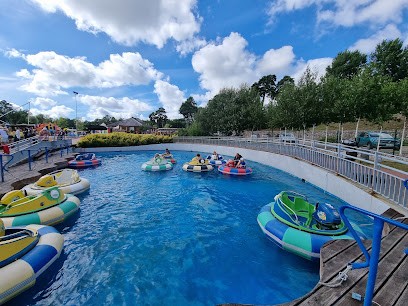
Children's town
Discover the enchanting Children's Town in Ventspils, a vibrant amusement center where joy, adventure, and creativity come alive for families and young explorers.
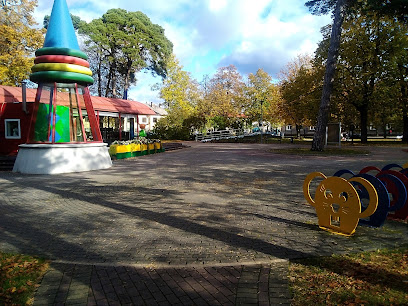
Ventspils Water Park
Splash into fun at Ventspils Water Park! Enjoy thrilling slides, relaxing pools, and seaside vibes in this seasonal aquatic paradise.
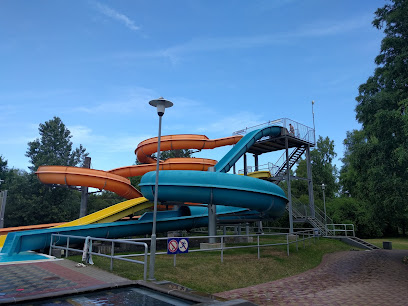
Livonian Order Castle
Explore centuries of history at Ventspils Castle, a remarkably preserved medieval fortress and home to the engaging Ventspils Museum.
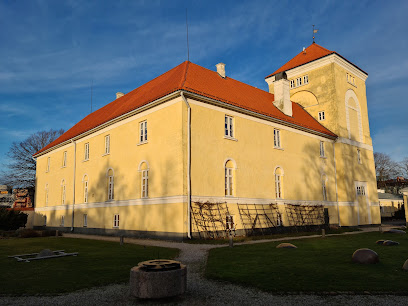
Fregate whale fountain
Explore the Fregate Whale Fountain in Ventspils, a stunning blend of art and nature that celebrates the city's maritime heritage.
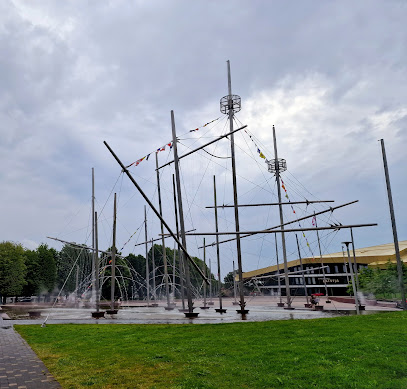
Hercogs Jēkabs, Ekskursiju kuģītis
Discover Ventspils from the water aboard the Hercogs Jēkabs, a scenic tour boat offering unique views of the city's port, history, and industrial heart.
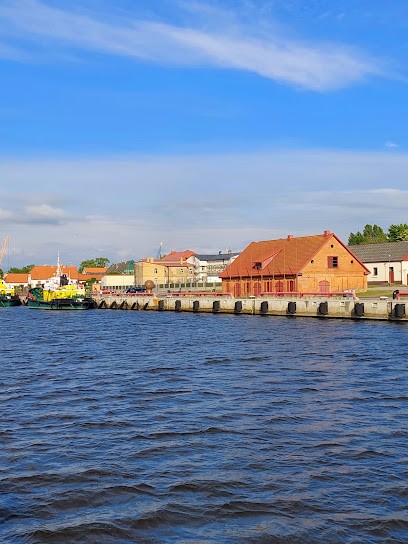
Piejuras brivdabas muzejs
Discover Latvia's maritime past at Ventspils' open-air museum: historic buildings, unique boats, and coastal traditions await!
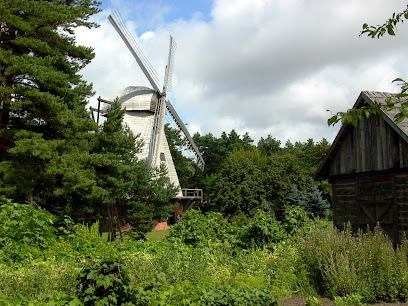
Ventspils South Pier
Stroll along Ventspils South Pier for stunning sea views, a historic lighthouse, and a taste of Latvia's maritime charm.
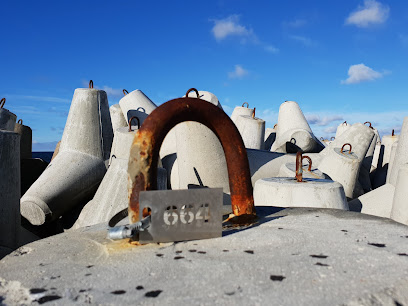
Pankūkas un pelmeņi
Enjoy delicious and affordable pancakes and dumplings at this cozy Ventspils bistro, a local favorite for comforting and satisfying meals.
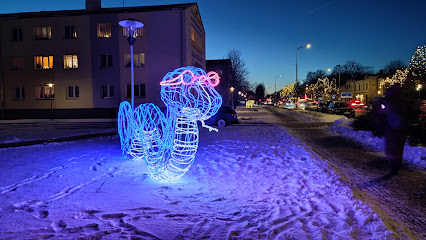
Hotspot Ventspils
A vibrant cafe in Ventspils offering a delicious mix of poke bowls, sushi, and wok dishes in a modern and inviting atmosphere.
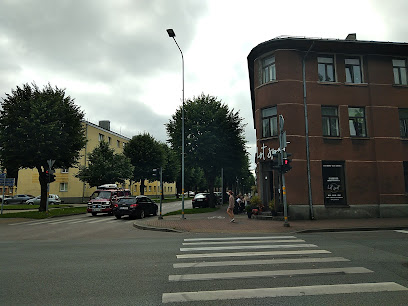
Ventspils Tourism and Information Centre
Your essential starting point for exploring Ventspils, offering expert advice, maps, and guides to uncover the best of this Latvian coastal gem.
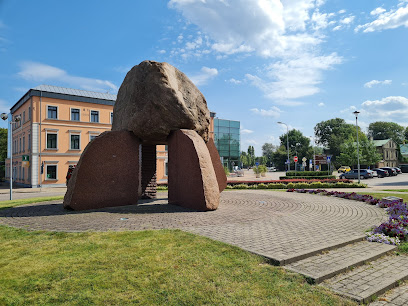
Ventspils Marina / Ventspils jahtu osta
Explore the Baltic Sea from Ventspils Marina: Modern facilities, rich maritime history, and a perfect base for coastal adventures.
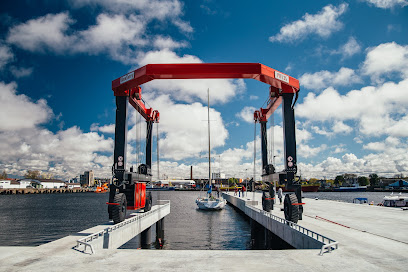
Ventspils , dzelzcela stacija
Explore the beauty of Latvia from Ventspils Railway Station, your gateway to stunning coastal views and rich cultural experiences.
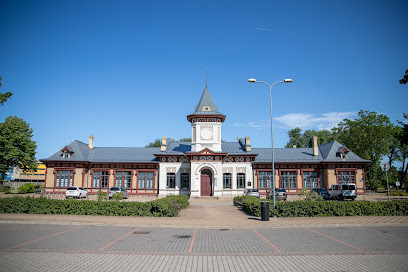
Kaķa taka , piedzivojumu parks
Experience the thrill of outdoor adventures at Kaķa taka, a must-visit adventure park in Ventspils, Latvia, perfect for families and adventure enthusiasts.
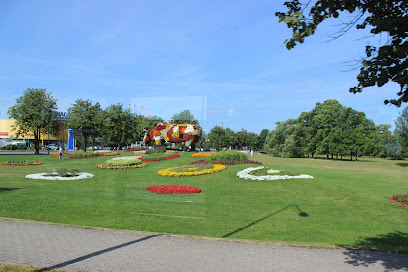
International Writers 'and Translators' House
A haven for writers and translators in a historic building, fostering creativity and cross-cultural exchange in Ventspils, Latvia.
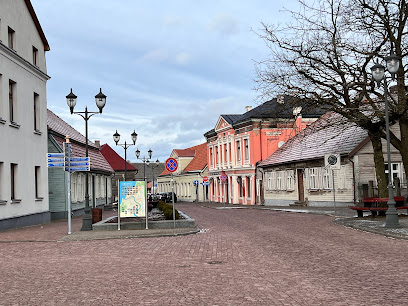
Unmissable attractions to see
Ventspils Piedzīvojumu parks
Experience endless fun and adventure at Ventspils Piedzīvojumu Parks, an exciting amusement park in the heart of Latvia.
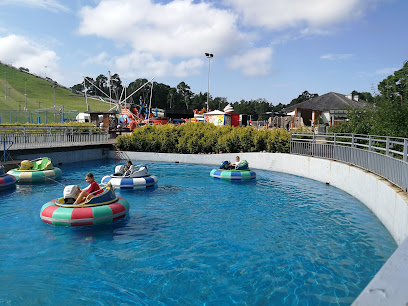
Children's town
Experience the joy of Ventspils Children's Town, a magical amusement center filled with fun attractions and adventures for the whole family.
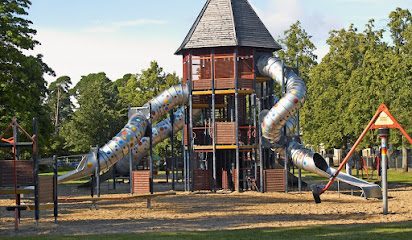
Ventspils Water Park
Experience the ultimate aquatic adventure at Ventspils Water Park, Latvia's vibrant destination for fun, relaxation, and family-friendly activities.
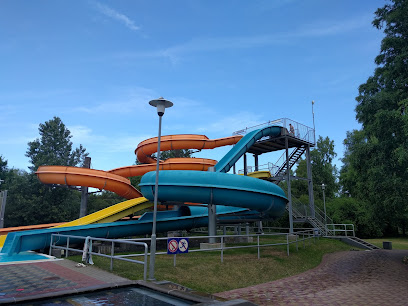
Livonian Order Castle
Discover the rich history and stunning architecture of the Livonian Order Castle, a must-visit tourist attraction in Ventspils, Latvia.
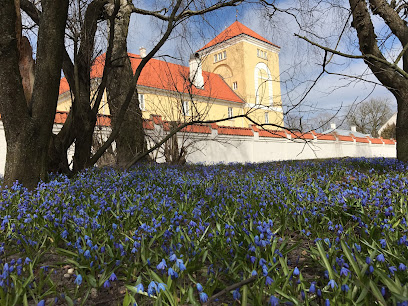
Renka park
Explore the beauty of Renka Park in Ventspils, a serene escape filled with lush gardens, children's playgrounds, and community events.
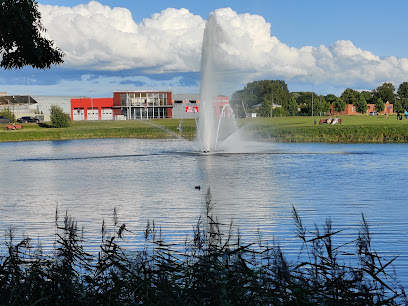
Fregate whale fountain
Experience the magic of the Fregate Whale Fountain in Ventspils, where art meets nature in a stunning display for all ages.
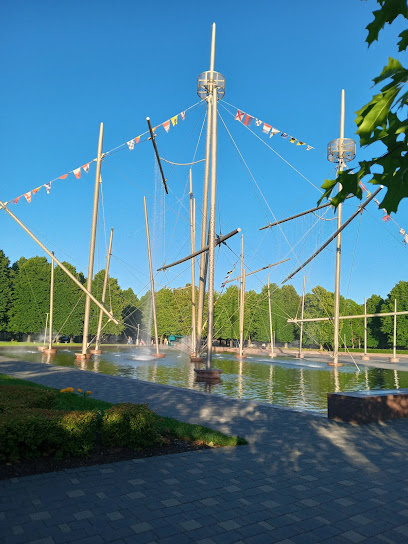
Hercogs Jēkabs, Ekskursiju kuģītis
Experience the beauty of Ventspils with amazing boat tours at Hercogs Jēkabs, where adventure meets the charm of the Baltic Sea.
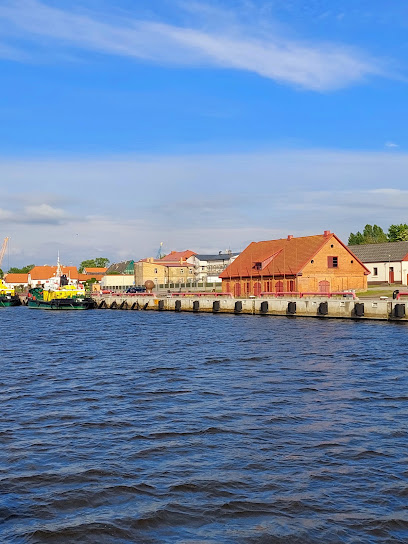
Piejuras brivdabas muzejs
Explore the Piejūras Brīvdabas Muzejs, an open-air museum in Ventspils, celebrating Latvia's rich maritime history and coastal traditions.
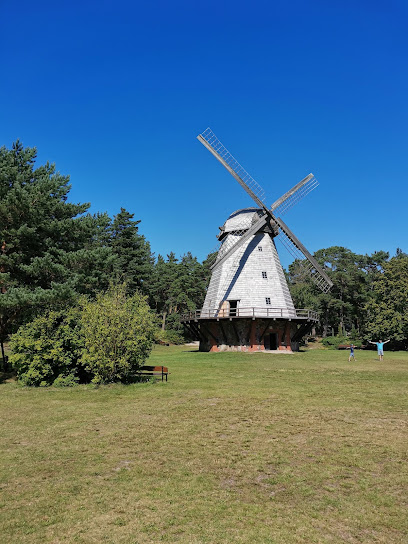
Riezupe Sand Caves
Explore the Riezupe Sand Caves, a captivating natural wonder in Latvia, revealing stunning formations and a serene underground adventure.
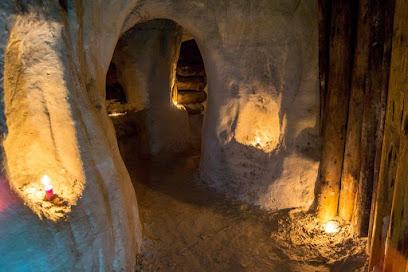
Fantasy play park
Experience the magic of Fantasy Play Park in Ventspils, a delightful amusement center where children’s imaginations come to life through play and adventure.
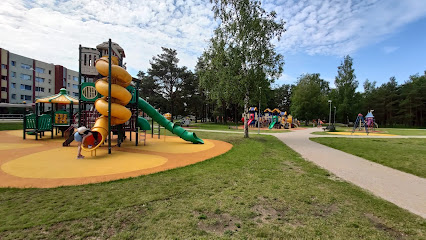
Jurmalas Parks
Experience the tranquility and beauty of Jurmalas Parks in Ventspils, Latvia – a perfect blend of nature and leisure for every traveler.
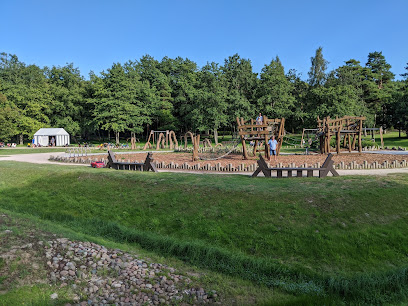
Kurzeme coastline
Explore the stunning natural beauty of the Kurzeme coastline, a tranquil preserve featuring light sandy beaches and vibrant ecosystems in Latvia.
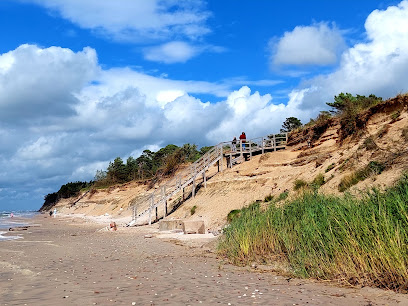
Ostas ielas Promenāde
Discover the captivating beauty and vibrant culture of Ostas ielas Promenāde in Ventspils, Latvia - a perfect blend of nature and urban charm.
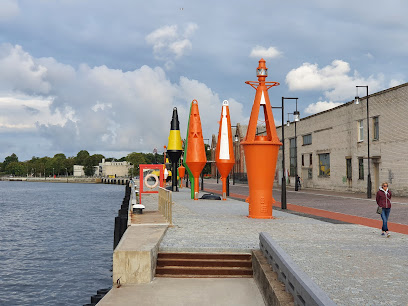
Crafts house
Explore the vibrant craftsmanship and rich cultural heritage at Ventspils' Crafts House, an engaging museum for all ages.
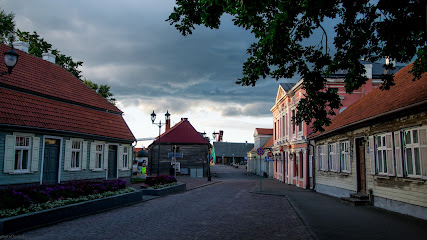
Ventspils Briezu Darzs
Explore Ventspils Briezu Darzs, a serene park and rest stop offering lush greenery and peaceful paths for relaxation and family fun in Ventspils.
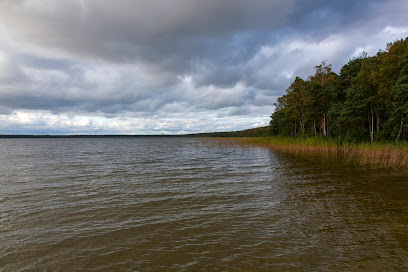
Essential places to dine
Skroderkrogs
Discover authentic Latvian cuisine at Skroderkrogs in Ventspils, where local flavors meet warm hospitality.
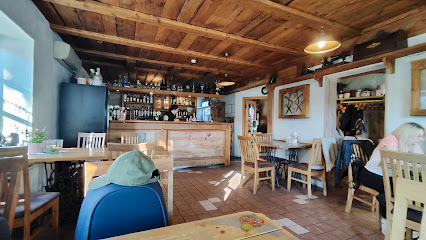
Tex-Mex
Experience vibrant Tex-Mex cuisine in Ventspils - where flavorful dishes meet lively nightlife.
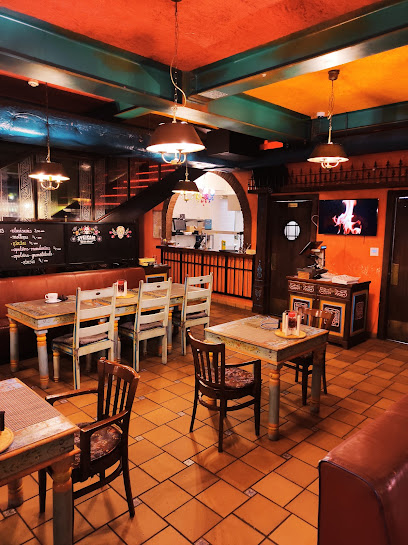
Ērmanītis
Experience authentic Latvian cuisine at Ērmanītis in Ventspils – where every meal tells a story.
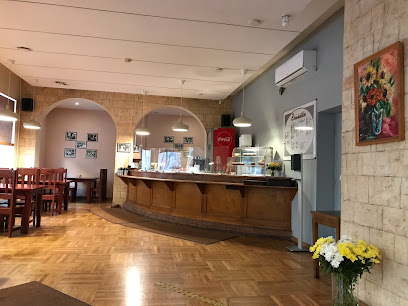
Dolce Vita
Experience authentic Italian cuisine at Dolce Vita in Ventspils - where every pizza tells a delicious story.
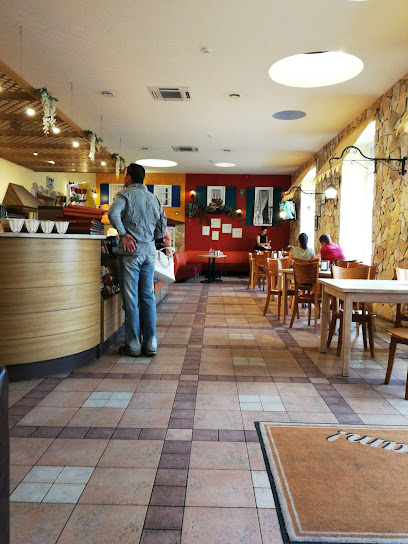
Pankūkas un pelmeņi
Experience authentic Latvian flavors at Pankūkas un Pelmeņi Bistro in Ventspils – home of delicious pancakes and dumplings.
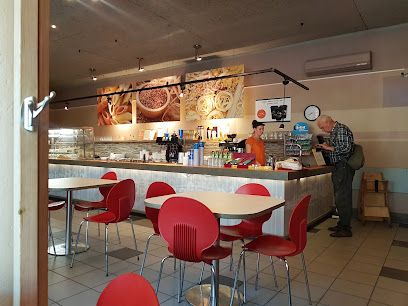
Grill Pub
Discover the flavors of Latvia at Grill Pub in Ventspils - where every meal is a celebration of local cuisine.
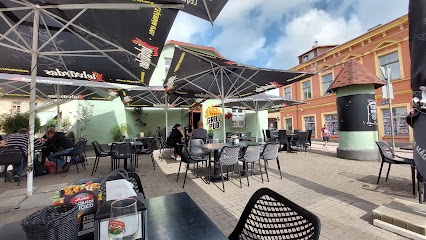
Sushi Fighter Ventspils
Savor exquisite sushi and vibrant flavors at Sushi Fighter Ventspils, where every meal is a culinary adventure waiting to be explored.
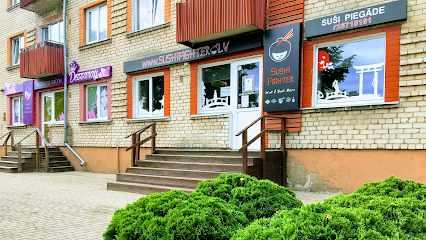
Kupfernams
Discover Kupfernams: A delightful café and hotel offering local flavors and cozy accommodations in the heart of Ventspils.
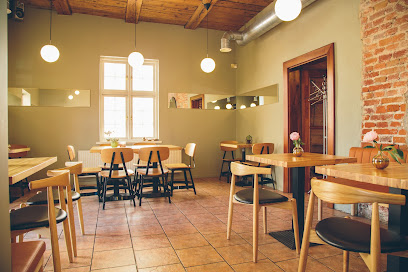
Hotspot Ventspils
Experience the vibrant flavors of poke bowls, sushi, and wok dishes at Hotspot Ventspils - a culinary haven in Latvia.
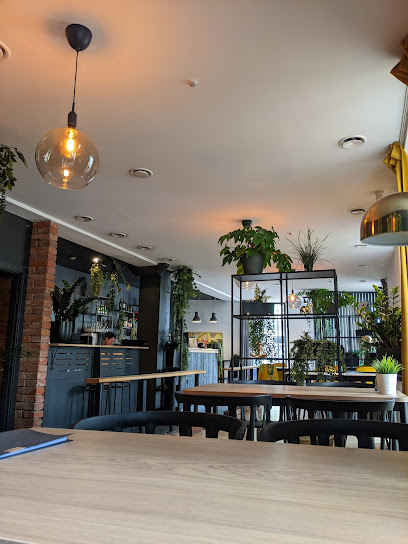
Silrak Restorāns & Kokteiļu Bārs
Discover the culinary magic at Silrak Restorāns & Kokteiļu Bārs in Ventspils - where every meal is a celebration of flavor!
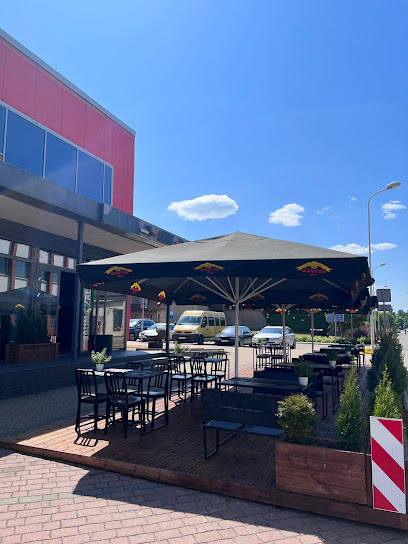
Betānija
Discover Betānija in Ventspils - where authentic Latvian cuisine meets warm hospitality in a cozy setting.
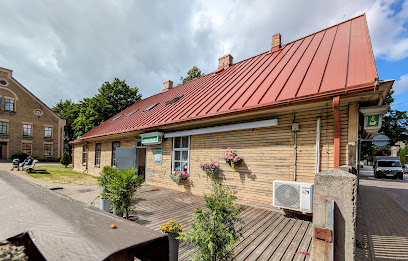
Pilskrogs
Experience delightful family dining at Pilskrogs in Ventspils, offering local flavors and a warm atmosphere perfect for all ages.
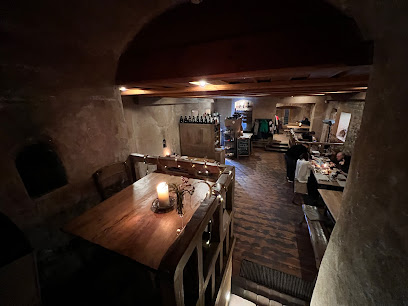
Café Dzintarjūra
Experience authentic Italian pizza at Café Dzintarjūra in Ventspils - where flavor meets tradition in every slice.
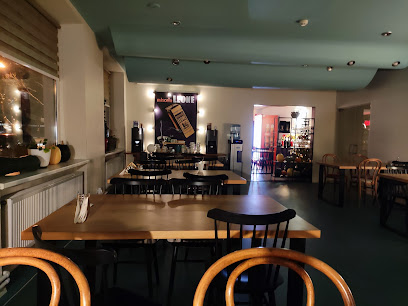
Meisons
Discover Meisons in Ventspils - where family-friendly dining meets delicious local cuisine for an unforgettable culinary experience.
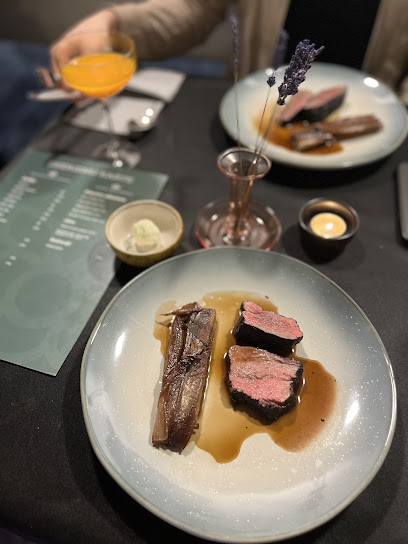
Café Columbia
Discover delightful dishes and cozy vibes at Café Columbia in Ventspils – where local flavors meet warm hospitality.
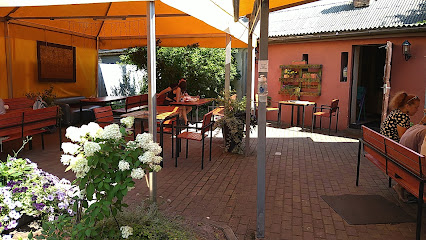
Markets, malls and hidden boutiques
Shopping Center Tobago
Explore Shopping Center Tobago in Ventspils, a vibrant shopping destination offering a wide array of retail stores, dining options, and family-friendly entertainment.
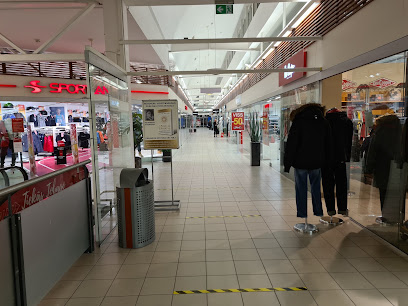
RD Electronics
Explore the latest in technology and gadgets at RD Electronics, a top destination for tech enthusiasts in Ventspils, Latvia.
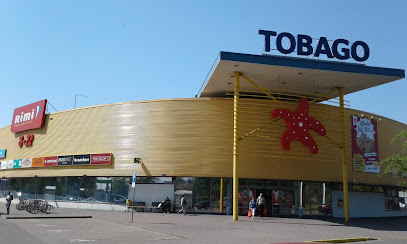
Mājai un Dārzam
Explore Mājai un Dārzam in Ventspils for exceptional DIY supplies, expert advice, and a vibrant community of craft lovers.
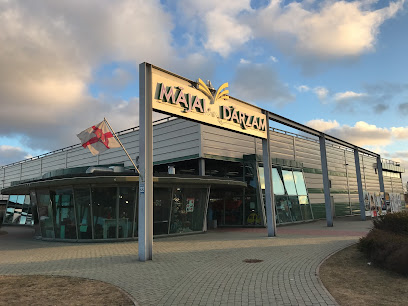
Citro
Explore local flavors at Citro Grocery Store in Ventspils, a perfect stop for fresh produce and delightful local products.
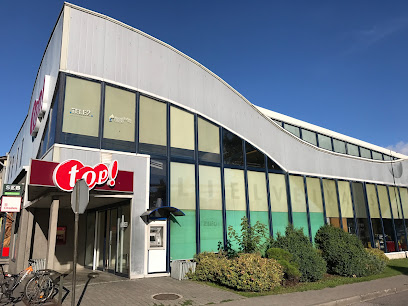
Drogas
Explore Drogas in Ventspils for an exceptional selection of beauty supplies, cosmetics, and home goods, perfect for gifts or personal indulgence.
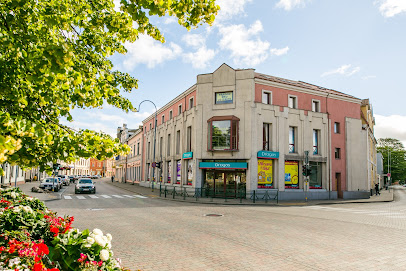
Beta, veikals, Rust
Discover the local flavors of Ventspils at Beta, your go-to grocery store for fresh produce and unique Latvian specialties.
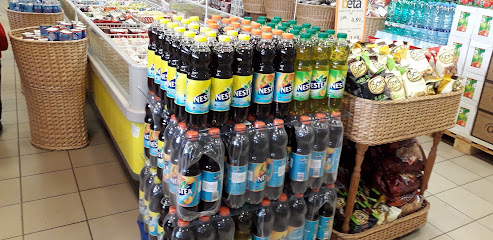
Ventspils Kārumnieks
Discover the sweet essence of Latvia at Ventspils Kārumnieks, a pastry haven offering delicious treats in a charming setting.
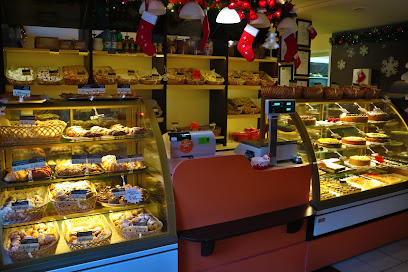
JYSK
Explore JYSK in Ventspils for affordable Scandinavian furniture and stylish home goods that add a touch of elegance to your living space.
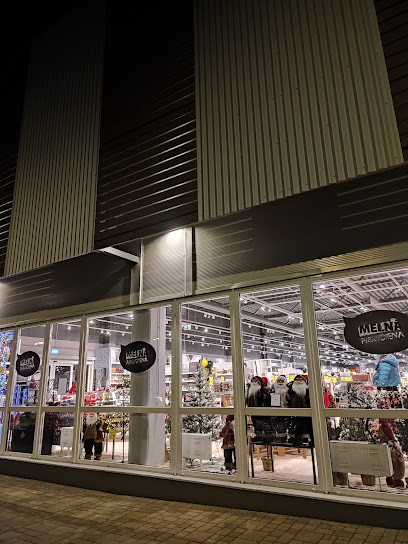
Elvi , veikals
Discover Ventspils' local flavors at Elvi Veikals, your go-to grocery store for fresh produce, local delicacies, and a taste of Latvia.
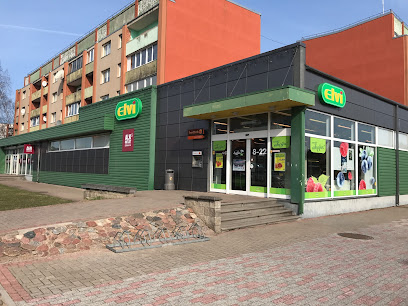
Jānis Roze, SIA - Ventspils
Explore the enchanting world of literature at Jānis Roze bookstore in Ventspils, where every book tells a story and every visit inspires a new adventure.
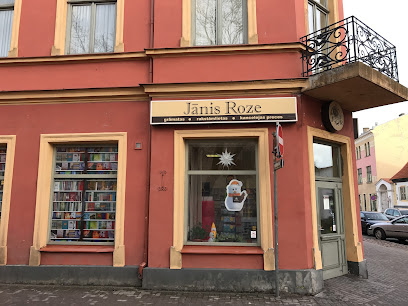
Sokolade , veikals
Explore unique local fashion at Sokolade in Ventspils, where quality meets creativity in a charming shopping experience.
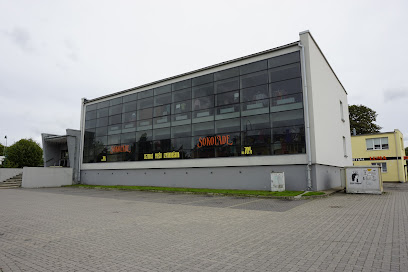
AlkOutlet Dzērieni & Vīni
Explore a diverse selection of local wines and beverages at AlkOutlet Dzērieni & Vīni, a must-visit store in Ventspils for every traveler.
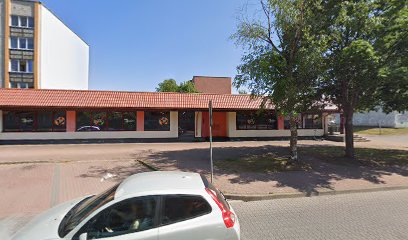
Diana Sveces
Discover the art of candle making at Diana Sveces in Ventspils, where every candle tells a story and fills your senses with delight.
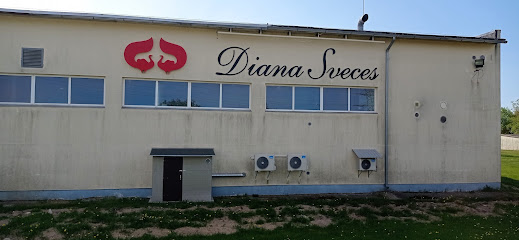
Elvi
Experience local flavors and essentials at Elvi, Ventspils' vibrant store offering a taste of Latvia's culinary delights.
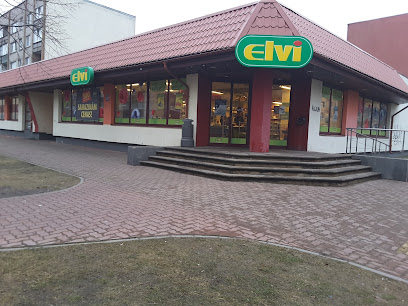
Pepco
Discover Pepco in Ventspils for affordable clothing, home essentials, and toys that cater to families and travelers alike.
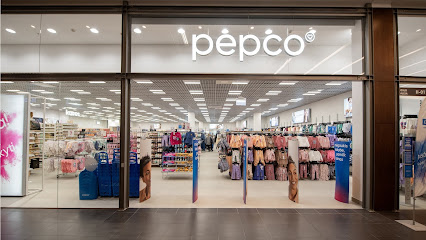
Essential bars & hidden hideouts
Skroderkrogs
Experience authentic Latvian cuisine at Skroderkrogs, a must-visit restaurant in Ventspils, known for its delightful dishes and warm atmosphere.
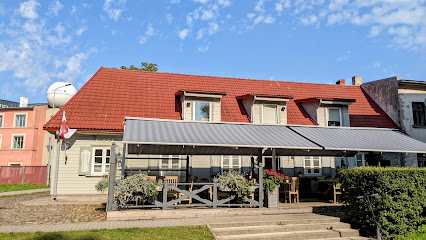
Tex-Mex
Discover the lively Tex-Mex bar and restaurant in Ventspils, where delicious cuisine meets vibrant nightlife for an unforgettable experience.
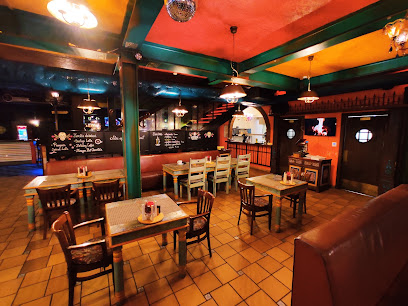
Pasiekstes vējdzirnavas
Experience authentic Latvian cuisine and local beers at Pasiekstes Vējdzirnavas, a cozy pub in Vārve parish surrounded by stunning countryside views.
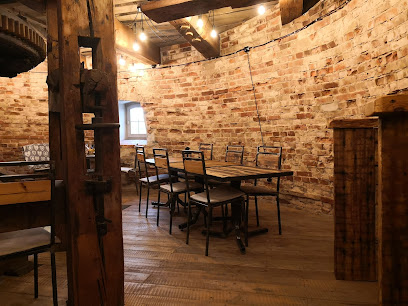
Pankūkas un pelmeņi
Experience traditional Latvian cuisine at Pankūkas un pelmeņi, where delightful pancakes and dumplings await in the heart of Ventspils.
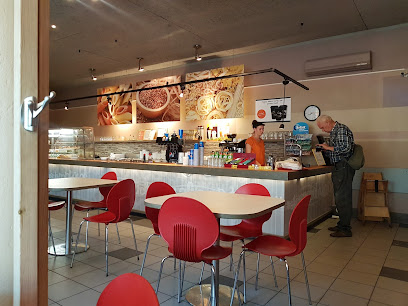
Grill Pub
Discover the culinary delights of Grill Pub in Ventspils, where grilled specialties meet a warm, inviting atmosphere for an unforgettable dining experience.
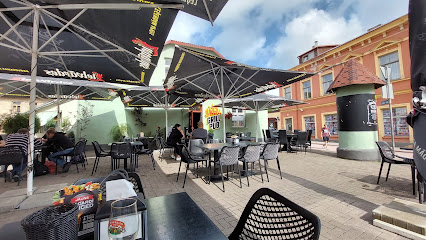
BurgerBārs Ventspils
Discover the ultimate burger experience at BurgerBārs Ventspils, where gourmet meets comfort in a cozy cafe setting.
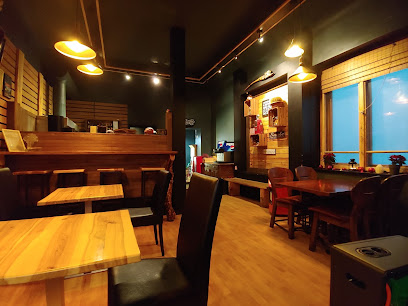
Ventspils alus darītava Courlander
Explore Ventspils alus darītava Courlander, a haven for craft beer lovers with a cozy atmosphere and unique local brews.
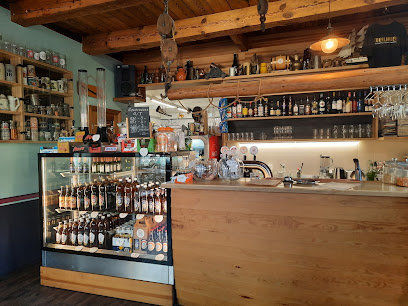
Sushi Fighter Ventspils
Discover a culinary gem in Ventspils at Sushi Fighter, where fresh sushi and Asian delights await in a cozy dining atmosphere.
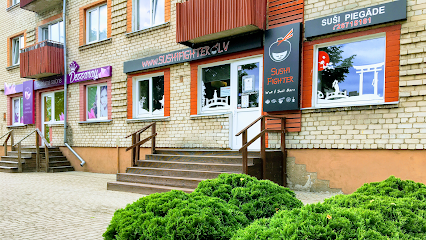
Hotspot Ventspils
Discover an exquisite blend of sushi, poke, and wok dishes at Hotspot Ventspils, a must-visit cafe for food lovers in the heart of Latvia.
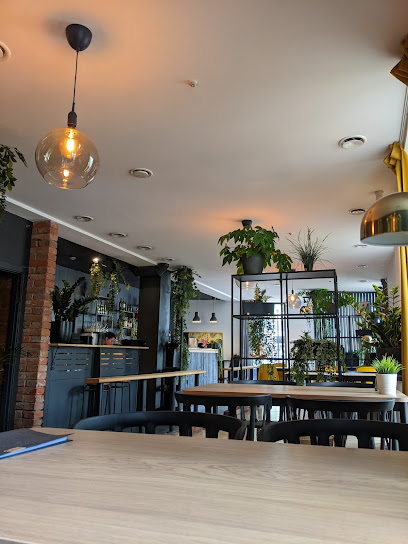
Silrak Restorāns & Kokteiļu Bārs
Discover the vibrant culinary and nightlife scene at Silrak Restorāns & Kokteiļu Bārs, where exceptional food meets expertly crafted cocktails.
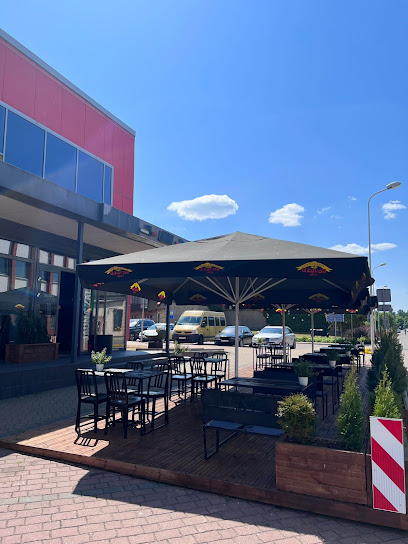
ECHO BAR
Discover Echo Bar in Ventspils: a lively hotspot for cocktails, music, and an unforgettable nightlife experience.
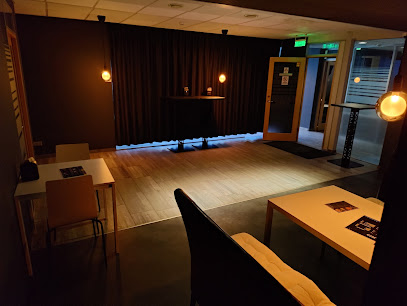
Ole Bārs un Virtuve
Experience the vibrant atmosphere and delicious fusion cuisine at Ole Bārs un Virtuve, Ventspils' premier bar and restaurant.
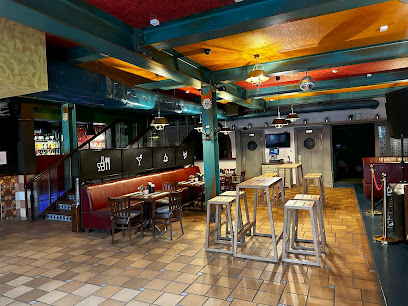
Joker , spelu zale
Experience excitement at Joker Spelu Zale in Ventspils – a vibrant gaming bar offering endless fun and entertainment for all visitors.
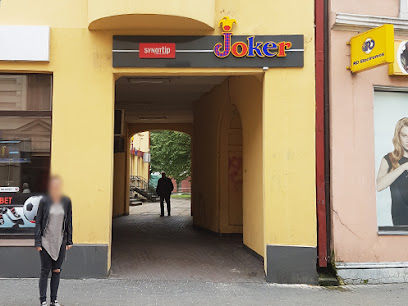
Windau Wines
Experience the exquisite taste of Latvia at Windau Wines, where local wines, cheeses, and a warm atmosphere await.
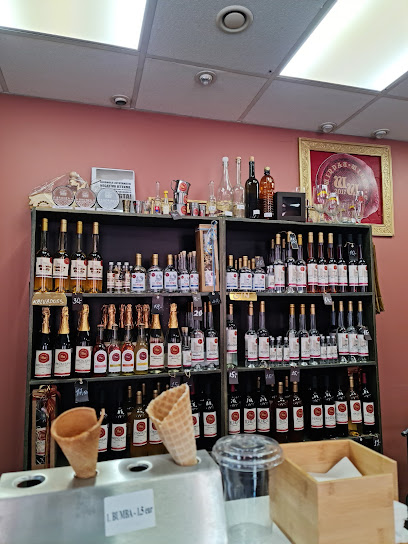
Local Phrases
-
- HelloSveiki
[svei-ki] - GoodbyeUz redzēšanos
[uz red-ze-sha-nos] - YesJā
[ya] - NoNē
[ne] - Please/You're welcomeLūdzu
[lu-du] - Thank youPaldies
[pal-dyes] - Excuse me/SorryAtvainojiet
[at-vai-no-yet] - How are you?Kā jums klājas?
[ka yums kla-yas] - Fine. And you?Labi. Un jums?
[la-bi un yums] - Do you speak English?Vai jūs runājat angļu valodā?
[vai yus roo-na-yat ang-lu va-lo-da] - I don't understandEs nesaprotu
[es ne-sa-pro-tu]
- HelloSveiki
-
- I'd like to see the menu, pleaseEs vēlētos redzēt ēdienkarti, lūdzu
[es vye-le-toz red-zeet ey-dyen-kar-ti lu-du] - I don't eat meatEs nēēdu gaļu
[es ne-ye-du ga-lu] - Cheers!Priekā!
[prie-ka] - I would like to pay, pleaseEs vēlētos samaksāt, lūdzu
[es vye-le-toz sa-ma-kaat lu-du]
- I'd like to see the menu, pleaseEs vēlētos redzēt ēdienkarti, lūdzu
-
- Help!Palīdzība!
[pa-lee-dzi-ba] - Go away!Aiziet prom!
[ai-zi-et prom] - Call the Police!Zvaniet policiju!
[zva-nyet po-li-tsi-yu] - Call a doctor!Zvaniet ārstu!
[zva-nyet aar-stu] - I'm lostEs esmu pazudis
[es es-mu pa-zu-dis] - I'm illMan ir slikti
[man ir sluk-ti]
- Help!Palīdzība!
-
- I'd like to buy...Es vēlētos nopirkt...
[es vye-le-toz no-pirk-t] - I'm just lookingEs tikai pārskatos
[es ti-kai paar-ska-tos] - How much is it?Cik tas maksā?
[tsik tas mak-sa] - That's too expensiveTas ir pārāk dārgi
[tas ir paar-ak dar-gi] - Can you lower the price?Vai jūs varat pazemināt cenu?
[vai yus va-rat pa-ze-mi-naat che-nu]
- I'd like to buy...Es vēlētos nopirkt...
-
- What time is it?Cik pulkstenis?
[tsik pulk-ste-nis] - It's one o'clockTas ir viens
[tas ir vyens] - Half past (10)Pusdesmit
[poos-des-mit] - MorningRīts
[riits] - AfternoonPēcpusdiena
[pech-pus-dye-na] - EveningVakars
[va-kars] - YesterdayVakar
[va-kar] - TodayŠodien
[sho-dyen] - TomorrowRīt
[riit] - 1Viens
[vyens] - 2Divi
[dee-vee] - 3Trīs
[trees] - 4Četri
[che-tri] - 5Pieci
[pye-tsi] - 6Seši
[se-shee] - 7Septiņi
[sep-tee-nee] - 8Astoņi
[as-ton-yi] - 9Deviņi
[de-vye-nee] - 10Desmit
[des-mit]
- What time is it?Cik pulkstenis?
-
- Where's a/the...?Kur ir...?
[koor ir] - What's the address?Kāda ir adrese?
[kaa-da ir a-dre-se] - Can you show me (on the map)?Vai jūs varat man parādīt (uz kartes)?
[vai yus va-rat man pa-ra-diit uz kar-tes] - When's the next (bus)?Kad ir nākamais (autobuss)?
[kad ir na-ka-mais au-to-booss] - A ticket (to ....)Biļete (uz ....)
[bee-ye-te uz]
- Where's a/the...?Kur ir...?
History of Ventspils
-
Ventspils, known historically as Windau, was first mentioned in written records in 1290. The town's development was significantly influenced by the Livonian Order, a military order of German knights. Ventspils Castle, constructed in the 13th century by these knights, stands as a testament to this period and is one of the oldest medieval fortresses in Latvia.
-
In the 14th and 15th centuries, Ventspils became a notable member of the Hanseatic League, a powerful alliance of trading cities and guilds. The town flourished as a trading port, dealing in goods such as grain, timber, and amber. This era marked Ventspils as a significant commercial hub in the Baltic Sea region.
-
The 16th and 17th centuries saw Ventspils caught between the interests of the Swedish and Polish empires. Both powers vied for control of the Baltic region, leading to periods of occupation and conflict. The Treaty of Oliva in 1660 eventually confirmed Swedish control over Ventspils and much of Latvia.
-
In the early 18th century, Ventspils came under the Russian Empire following the Great Northern War. The town's strategic importance continued to grow, and it became a significant port for the Russian navy. During this period, substantial investments were made in developing the port infrastructure, which set the stage for future economic growth.
-
The 20th century brought tumultuous times to Ventspils, with both World Wars leaving their mark. During World War II, the town was occupied by Nazi Germany and later by the Soviet Union. Under Soviet rule, Ventspils was transformed into a major industrial and fishing port. The Soviets heavily invested in the town's infrastructure, including the development of oil and chemical industries.
-
With Latvia’s independence in 1991, Ventspils embarked on a new chapter of development. The town has since modernized its port facilities and diversified its economy. Ventspils has become a key player in the Baltic Sea's shipping industry, and it is also known for its cultural events, such as the annual Sea Festival celebrating its maritime heritage.
-
Today, Ventspils is renowned for its rich cultural heritage and vibrant tourism scene. The Ventspils Museum, housed in the historic castle, offers insights into the town's storied past, while the International Writers’ and Translators’ House fosters literary and cultural exchanges. The well-preserved Old Town, with its colorful facades, and the modern Ventspils Adventure Park, make the city a diverse and attractive destination for visitors.
Ventspils Essentials
-
Ventspils is located in the northwest of Latvia, along the Baltic Sea. The nearest major airport is Riga International Airport (RIX), approximately 190 kilometers away. From Riga, you can reach Ventspils by bus, which takes around 3 hours and is operated by several companies including Ecolines and Lux Express. Alternatively, you can rent a car and drive, which takes about 2.5 hours via the A10 highway. During the summer months, ferries also operate from several Baltic ports directly to Ventspils.
-
Ventspils has a well-organized public transport system, primarily consisting of buses. Tickets can be purchased from the driver or at ticket machines. Taxis are also available and can be hailed on the street or booked via phone. For a more local experience, consider renting a bicycle; Ventspils is known for its bike-friendly infrastructure with numerous cycling paths. Walking is another viable option, as the town is compact and many attractions are within walking distance of each other.
-
The official currency in Latvia is the Euro (EUR). Credit and debit cards are widely accepted in Ventspils, including in most hotels, restaurants, and shops. However, it is always a good idea to carry some cash for smaller purchases or in case you visit rural areas. ATMs are plentiful and can be found throughout the town. Currency exchange services are also available at banks and some hotels.
-
Ventspils is generally a safe destination for tourists. Crime rates are low, but it is always advisable to stay vigilant. Avoid isolated areas at night and keep an eye on your belongings in crowded places to prevent pickpocketing. There are no specific neighborhoods with high crime rates targeting tourists, but standard safety precautions should always be followed.
-
In case of emergency, dial 112 for immediate assistance, which connects you to police, fire, and medical services. Ventspils has a local police station and a hospital equipped to handle medical emergencies. It is recommended to have travel insurance that covers medical emergencies. Pharmacies are available for minor health issues and over-the-counter medications.
-
Fashion: Do dress comfortably but modestly. Casual wear is acceptable, but avoid overly revealing clothing. Religion: Do be respectful when visiting religious sites. Cover your head and shoulders when entering churches. Public Transport: Do be courteous and offer your seat to elderly passengers. Don't eat or drink on public transport. Greetings: Do greet people with a friendly 'Labdien' (Good Day) or a handshake. Eating & Drinking: Do try local dishes like sklandrausis (carrot and rye pastry) and smoked fish. Don't refuse hospitality, as it is considered impolite.
-
To experience Ventspils like a local, visit the Ventspils Central Market where you can buy fresh produce and traditional Latvian goods. Spend time at the Ventspils Beach, a Blue Flag beach known for its cleanliness and facilities. Don’t miss the Ventspils Castle, which offers a glimpse into the town’s rich history. Engage with locals; they are often friendly and willing to share stories about Ventspils. For a unique experience, take a walk along the Promenade and enjoy the maritime atmosphere.
Trending Landmark in Ventspils
-
Ventspils Piedzīvojumu parks
-
Children's town
-
Ventspils Water Park
-
Livonian Order Castle
-
Fregate whale fountain
-
Hercogs Jēkabs, Ekskursiju kuģītis
-
Piejuras brivdabas muzejs
-
Ventspils South Pier
-
Pankūkas un pelmeņi
-
Hotspot Ventspils
-
Ventspils Tourism and Information Centre
-
Ventspils Marina / Ventspils jahtu osta
-
Ventspils , dzelzcela stacija
-
Kaķa taka , piedzivojumu parks
-
International Writers 'and Translators' House
Nearby Cities to Ventspils
-
Things To Do in Kuldiga
-
Things To Do in Talsi
-
Things To Do in Liepaja
-
Things To Do in Kuressaare
-
Things To Do in Jurmala
-
Things To Do in Riga
-
Things To Do in Kärdla
-
Things To Do in Klaipėda
-
Things To Do in Šiauliai
-
Things To Do in Sigulda
-
Things To Do in Visby
-
Things To Do in Pärnu
-
Things To Do in Haapsalu
-
Things To Do in Cesis
-
Things To Do in Panevėžys










